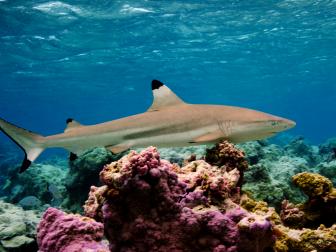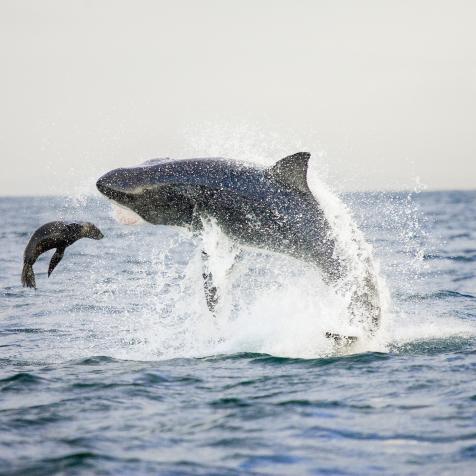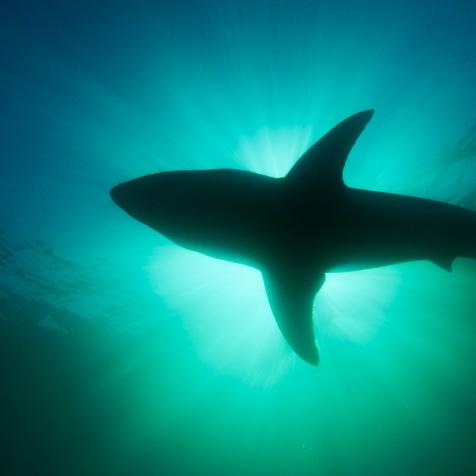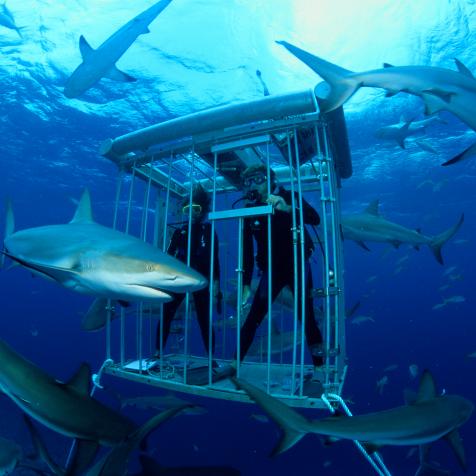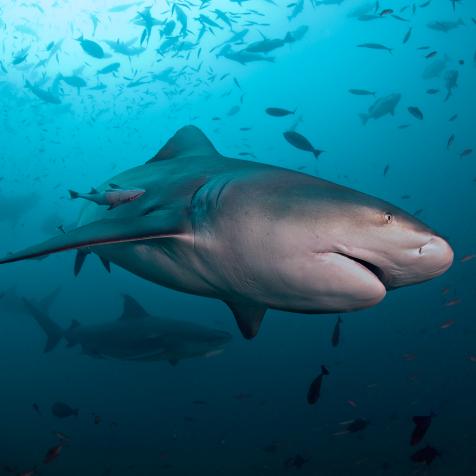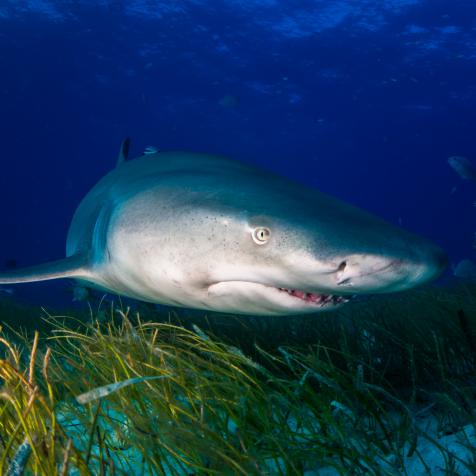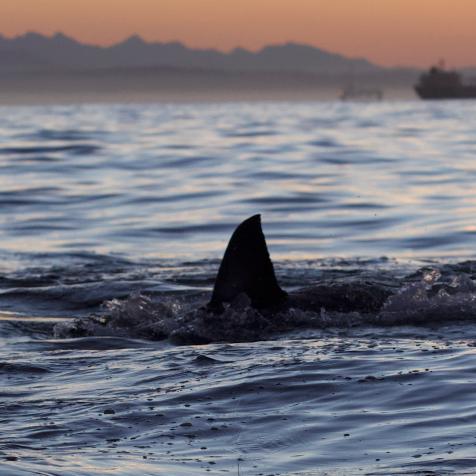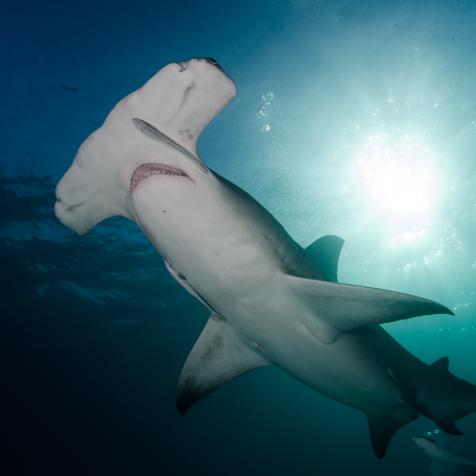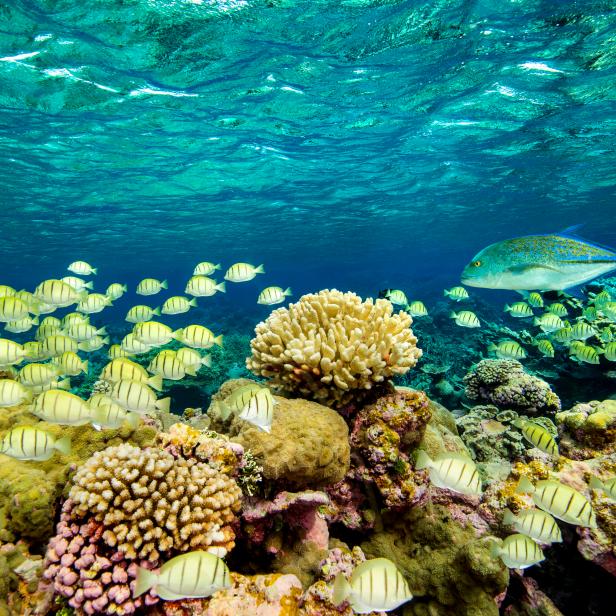
Tandem Stills + Motion
The Shark Atoll of Palmyra

Palmyra Atoll is an uninhabited coral atoll in the Pacific Ocean that is part of a massive oceanic conservation area known as Pacific Remote Islands Marine National Monument. It's vital to the health of our world's oceans and it's filled with sharks.
As I stepped onto Palmyra for the first time, the endless shriek of sooty terns, a type of seabird, called out repeatedly with a high pitched cackle that never ceased, even at night. The jungle of the island is overgrown, the long arms of palm trees stretched out over the clear inner lagoon disturbed only by the gentle ripple of a black tip reef sharks dorsal fin breaking the surface as it hunts in the shallows.
Every night it rained, a kind of thunderous downpour that at once forces you to seek shelter, and at the same time, makes you grateful for its cooling effects from the blistering heat of day. This coral atoll is alive.
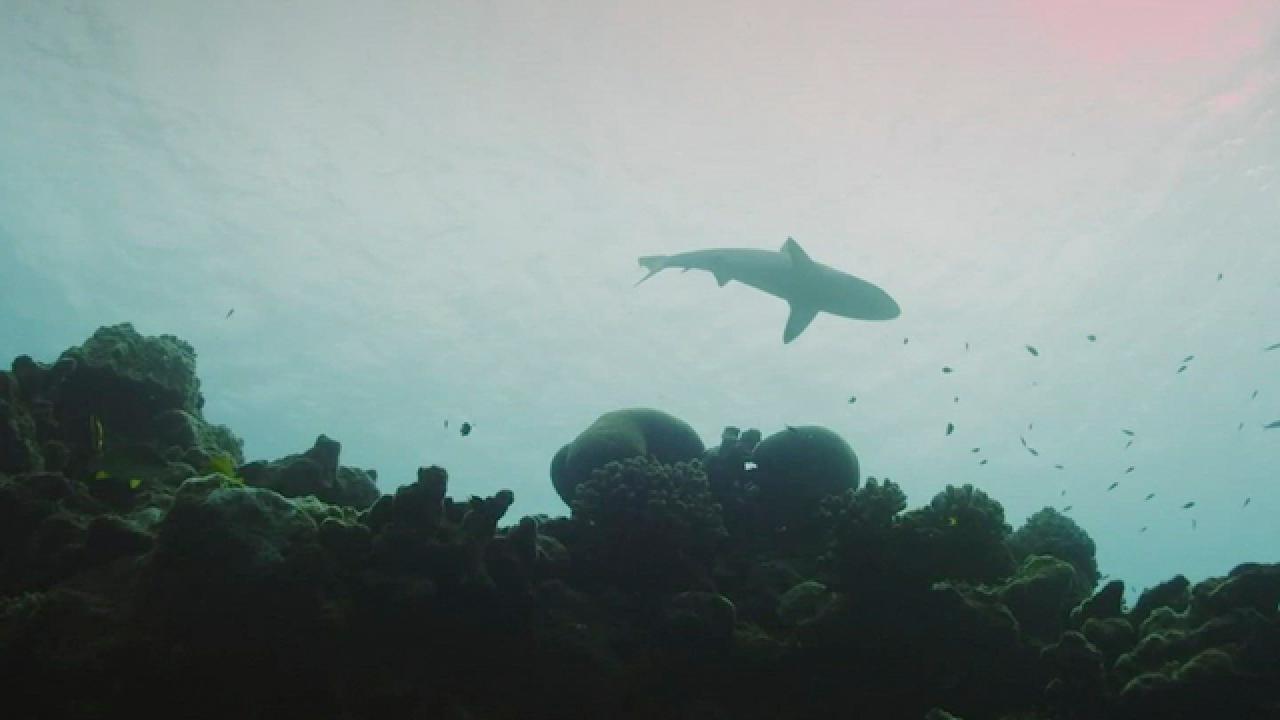
It's also a rare glimpse back to a time when all of the Pacific was this healthy, the last vestige of a primordial, tropical world. Palmyra Atoll is a remote, uninhabited coral atoll 1,200 miles southwest of Honolulu, Hawaii, and is widely considered by many scientists as one of the best places in the world to study an intact ecosystem--and especially sharks.
The first time I traveled to the atoll was part of an effort led by the US Fish & Wildlife Service and their partner, The Nature Conservancy. The rare beauty of an ecosystem uninterrupted immediately struck me. As a photographer, the opportunities abound. The only permanent residents are the wildlife--millions of seabirds, giant land-dwelling coconut crabs, and one of the most vibrant and healthy coral reefs I have ever set eyes on. Simply put, it was paradise, both for the visitor and for the creatures who rely on it for their survival.
The Beauty of Protecting Our Oceans: Shark Atoll 14 Photos
At least seven species of shark rely on the reef, lagoon and surrounding ocean, and we're learning more every day. Thanks to researchers with @nature_org, @usfws, @noaa and @ucsantabarbara, new data shows that sharks don't just feed here, but they may be bringing vital nutrients to coral reefs when they return from feeding in the open ocean.
There isn't much land at Palmyra, only about 600 acres, but it is the vital heart of Pacific Remote Islands Marine National Monument, a much larger swath of land and ocean totaling 13 million acres. It may sound large, but it’s the bare minimum required to keep this ecosystem healthy and thriving. The island has seen its share of visitors through history too, ranging from stories of pirates and buried treasure, to a more modern history as a base of operations during World War II, and of course, its pivotal role today as a research station.
My assignment lasted 14 days, and through it all, I would photograph as much as I could. Mornings and evenings were spent alongside the lagoon, prowling the jungle for giant crabs, or under the heat of the midday sun. I could often be found in the safe, inner lagoon, photographing the coral and sharks. It doesn't take much to see a place like this and understand why it is so important that it is protected. I hope to return one day, but until then, I’ll dream of this paradise and relive the moments through my photos.



































































